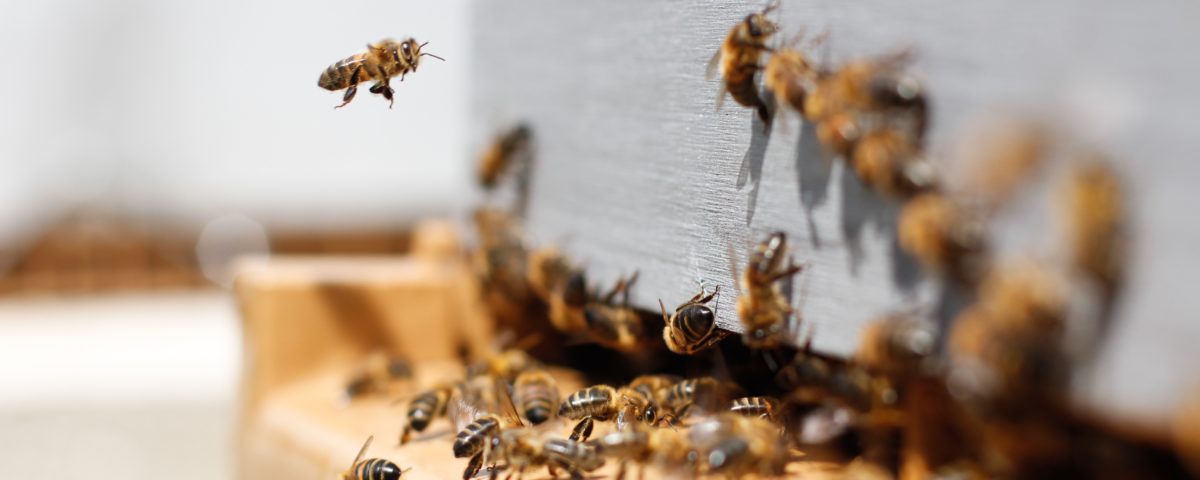- All-In-One Beekeeping for the Bees
- +1-608-728-8233
- info@beepods.com
Help Beepods Give 99% to the Center for Honeybee Research

Hive data is crucial to helping the honeybees.

Hive data is crucial to helping the honeybees.
The holidays are a festive time of year full of wrapping paper, cozy mugs of cocoa, and time with family. While twinkle lights and the wide variety of chewy Christmas cookies make this a special time of year, there is a spirit of giving that is the undercurrent for everything we do for the next four weeks. It’s the best time of year to give back.
At Beepods, it’s important for us to give back. We know that you like goodies, gifts, and special treats, but we also know that you care deeply about the bees. Just like us! We thought the perfect way to give back to you is to donate proceeds from our Flash Sale to the Center for Honeybee Research.
We value research and we believe the answers to the question of honeybee decline lie in the hands of scientists and data-collecting beekeepers. So, we wanted to partner with the Center for Honeybee Research. Based in Asheville, North Carolina, this organization collects data from beekeepers all over the world and makes it public.
You may be unfamiliar with their work, so let’s talk about where your money will go if you choose to help us give back by purchasing Recipes and Remedies: Using Honey and Other Bee Products to Sweeten Your Life.
Hive Research
Research is essential to figuring out how to address colony decline. Therefore, the more we know, the more we can make bee-saving adjustments to our beekeeping practices.
The Center for Honeybee Research is at the forefront of this process and compiles data from beekeepers all over the world. Using the HiveTool™, beekeepers are able to collect an extensive selection of valuable data points.
This organization conducts its own research as well, under the name Project Genesis.
Since they are not an academic institution, the Center for Honeybee Research does not have the barrier of administrative costs. This yields leaner and more efficient data collection. Their goal is to keep data accessible and whenever possible, they make their collected data available to the public.
Project Genesis
The Center for Honeybee Research designed its own longitudinal study, which will enter its 9th season in March of 2020. There are 20 colonies total in the study, with 10 serving as a treatment-free control group and the other 10 subject to interventions. Their team of volunteers perform twice-weekly inspections and record mite counts, information about the queen, and observations about pollen, nectar, and honey, for example.
Did we mention you can access all the recorded data? It’s available to the public through their website.
Hive Monitoring
Knowing how to observe and record hive data is important for beekeeping. The people at the Center for Honeybee Research embrace both traditional and modern methods for recording data. Using HiveTool™, they are able to track internal hive temperatures, humidity levels, rainfall, and hive weight. Using modern technology, they can synthesize as much data as possible. Plus, the data they acquire through the use of modern tools is data you can’t get through visual observation alone.

Hives can tell you a lot about the health of honeybees.
Honey Contest
Every year, the Center for Honeybee Research holds the Black Jar Honey Contest. Starting in December, they accept entries from all over the world. Multiple rounds of judging occur throughout the winter and early spring, with the entries narrowed down to the top 30 for the final event in June. The top 30 entries are placed in jars covered in black fabric so the judges can focus completely on taste. The winner receives a cash prize – and bragging rights.
It’s an event that highlights the beautiful variability in honey flavors, all created through the foraging activities of honeybees.
Help Us Give Back
If we all work together, we can find answers to a question that impacts all of us. Without a thriving pollinator population, we will not have access to the fruits and vegetables we need to thrive. Our survival is dependent on the survival of honeybees.
While we sit at the table with our loved ones and enjoy the crunchy onions on a green bean casserole or the celery slices in Mom’s homemade stuffing. Cranberry sauce with fresh orange zest. Buttery mashed potatoes. Perfectly spiced apple pie…think about the bees.
We wouldn’t have any of these nostalgic dishes during the holidays without the help of our pollinators.
Consider treating yourself to our new recipe e-book. From 10:00-11:00 a.m. Tuesday, December 3rd, 2019, Recipes and Remedies: Using Honey and Other Bee Products to Sweeten Your Life will be on sale for only $1.99. It’s a sweet deal. To get you the best value, we will throw in our Balms and Salve Making video course – the perfect companion to the recipe book. We will sweeten that deal by donating 99% of the proceeds from that hour to the Center for Honeybee Research.
You can help us give back. Help us help the honeybees.
In gratitude,
The Beepods Team
See also:
7 Interesting Honey Bee Statistics to Share with Your Friends
Pollinator Initiatives – What they are, who is involved, and why we need them
Caitlin Knudsen
Latest posts by Caitlin Knudsen (see all)
- How to Change Your Students’ Lives With Project-Based Learning - November 20, 2020
- Watch The Pollinators to See How We Can All Choose to Change Agriculture - November 13, 2020
- 6 Cold Weather Feeding Tips You Have to Know - November 6, 2020



